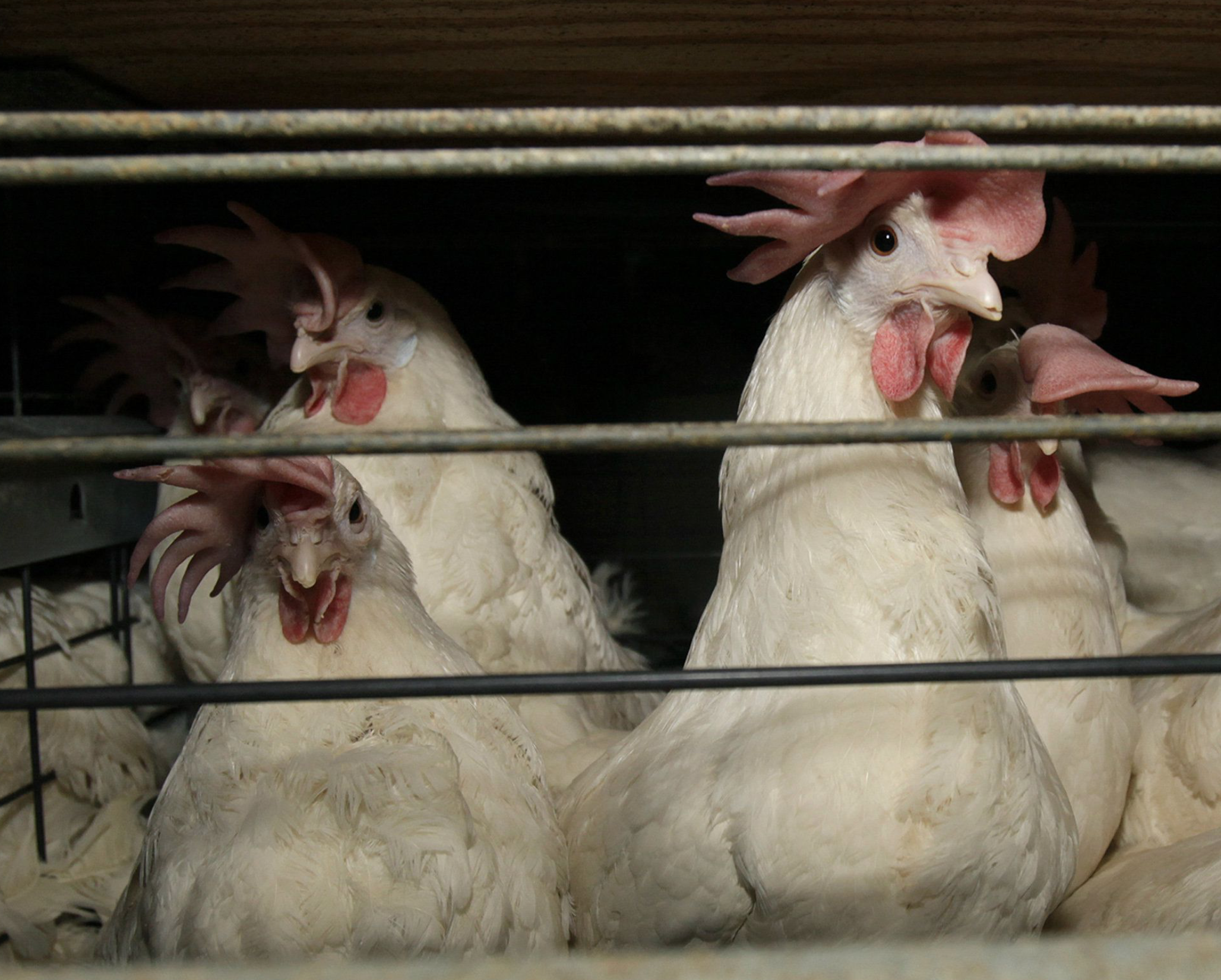Health and Food Safety
“...the fact remains that in terms of potential Salmonella contamination, eggs from caged hens are simply more dangerous than their cage-free counterparts.”
-The Center for Food Safety, who along with the National Consumers League, the Center for Science in the Public Interest and the Consumer Federation of America are just some of the public interest groups that have endorsed the Act to Prevent Cruelty to Farm Animals.

Packing farm animals into cages or crates so small they can’t move threatens the safety of our food. Crowded, filthy factory farms provide the perfect breeding conditions for disease, and the complete inability to exercise can weaken caged animals’ immune systems. Numerous studies show higher rates of deadly food-borne diseases, such as Salmonella, among caged hen operations versus their cage-free counterparts. The egg industry itself acknowledges these problems, with one poultry publication stating, “Salmonella thrives in cage housing.”
In addition, confined farm animals are often fed a steady stream of antibiotics to prevent them from dying prematurely in these wretched conditions. The use of antibiotics in caged animals can increase the prevalence of antibiotic-resistant bacteria in the food supply and among farm workers.
Check out the factsheet “Eggs from Caged Hens: Putting MA Families at Risk” to learn more.